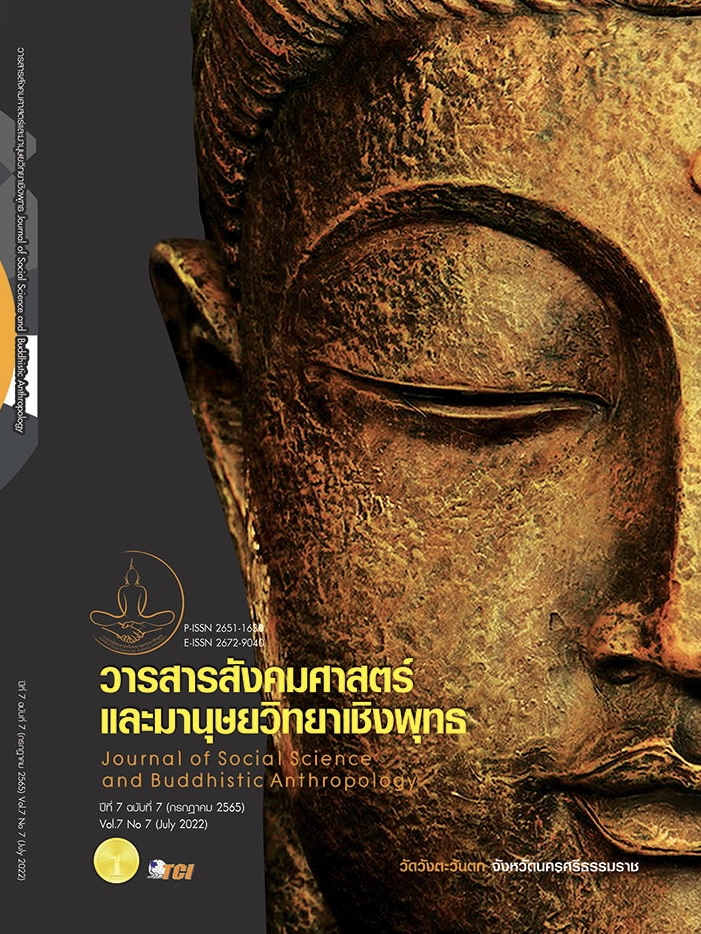NEED ASSESSMENT OF STRENGTHEN INDUSTRIAL HABITS FOR HIGH VOCATIONAL CERTIFICATE STUDENTS UNDER THE DUAL VOCATIONAL TRAINING SYSTEM EASTERN ECONOMIC CORRIDOR
Keywords:
Need Assessment, Industrial Habits, vocational students, Dual Vocational Training System, Eastern Economic CorridorAbstract
The objectives of this research article were to assess necessary to analyze by using Matrix Analysis the needs of strengthen industrial habits for high vocational certificate students. The samples of study who took questionnaires consisted of 350 students that were studying in a high vocational Certificate under the Dual Vocational training system and working as interns at an organization. The research instrument is an assessment report of necessary needs for strengthening industrial habits. It includes 30 questions of 10 aspects. The statistics of mean, standard deviation, Modified Priority Needs Index Analysis: PNI Modified and Matrix Analysis were used to analyze the data. The research findings are 1) Modified Priority Needs Index Analysis result was .643 in total. When rearranging the necessary needs of strengthening industrial habits, it showed that student’s discipline and punctuality was the most necessary need that should be reinforced (PNIModified = .784). The next ones are responsibility (PNIModified = .741), diligence and patience (PNIModified = .721), and the appetite for knowledge (PNIModified = .651). 2) From the Matrix Analysis, the result showed that the stage of needs falls into quadrant 3 which is in the level that needs to be extremely adjusted. This includes discipline, punctuality, responsibility, diligence, patience, and appetite for knowledge. Based on the results of the study, the scope of knowledge and understanding of industrial habits and used as information to organize activities to promote industrial habits for students to create desirable characteristics.
References
เกียรติอนันต์ ล้วนแก้ว. (2561). ช่องว่างทักษะกับนัยยะที่มีต่อการพัฒนากำลังคนของประเทศไทย. เรียกใช้เมื่อ 19 กันยายน 2561 จาก http://www.econ.tu.ac.th/sym posium40/paper/00 3_Symposium40-เกียรติอนันต์.pdf
ชัยพฤกษ์ เสรีรักษ์. (2555). ปัญหาแรงงานไทย. เรียกใช้เมื่อ 24 พฤษภาคม 2562 จาก http://www.dailynews co.th/content/edu/22515
ณัฐพงษ์ โตมั่น. (2561). การวิเคราะห์องค์ประกอบนิสัยอุตสาหกรรม สำหรับนักศึกษาครุศาสตร์อุตสาหกรรมเทคโนโลยีราชมงคลธัญบุรี. วารสารพัฒนาเทคนิคศึกษา, 30(105), 82-88.
ดวงนภา มกรานุรักษ์. (2554). อนาคตภาพการอาชีวศึกษาไทยในทศวรรษหน้า (พ.ศ. 2554 - 2564). ใน ดุษฎีนิพนธ์ปรัชญาดุษฎีบัณฑิต. สาขาวิชาการบริหารการศึกษา. มหาวิทยาลัยขอนแก่น.
บุญสืบ โพธิ์ศรี และคณะ. (2559). การบริหารหลักสูตรเพื่อสร้างคุณลักษณะแรงงานฝีมืออาชีพในระดับอาชีวศึกษา. วารสารสาขามนุษยศาสตร์ สังคมศาสตร์และศิลปะ, 9(1), 1268-1287.
พละกริท คอนซัลแทนท์. (2564). เรื่อง Soft Skills คืออะไร? เรียกใช้เมื่อ 3 ธันวาคม 2564 จาก https://www.palagrit.com/what-is-soft-skills/
วิสุทธิ์ จิราธิยุต. (2552). คุณสมบัติอันพึงประสงค์ของนักเรียนอาชีวศึกษาสำหรับการทำงานในภาคอุตสาหกรรม. เอกสารประกอบการประชุมสัมมนาการอาชีวศึกษาไทยภายในปี 2030. กรุงเทพมหานคร: กรมอาชีวศึกษา.
ศูนย์ข้อมูลแรงงานแห่งชาติ. (2562). ฐานข้อมูลแรงงานและประมาณการความต้องการแรงงานของอุตสาหกรรมเป้าหมายในพื้นที่ระเบียงเศรษฐกิจภาคตะวันออก. เรียกใช้เมื่อ 5 สิงหาคม 2562 จาก http://nlic.mol.go.th/
สำนักงานเลขาธิการสภาการศึกษา. (2560). แผนการศึกษาแห่งชาติ ฉบับปรับปรุง (พ.ศ. 2560 - 2579). เรียกใช้เมื่อ 19 สิงหาคม 2562 จาก http://www.onec.go. th/index.php/book/ BookView/ 1540
สุวิมล ว่องวานิช. (2558). การวิจัยประเมินความต้องการจำเป็น. (พิมพ์ครั้งที่ 3). กรุงเทพมหานคร: สำนักพิมพ์แห่งจุฬาลงกรณ์มหาวิทยาลัย.
Hodges, D. & Burchell, N. (2003). Business graduate competencies: Employers’ views on importance and performance. Asia-Pacific Journal of Cooperative Education, 4(2), 16-22.
Krejcie, R. V. & Morgan, D. W. (1970). Determining Sample Size for Research Activities. Educational and Psychological Measurement, 30(3), 607-610
Downloads
Published
How to Cite
Issue
Section
License
Copyright (c) 2022 Journal of Social Science and Buddhistic Anthropology

This work is licensed under a Creative Commons Attribution-NonCommercial-NoDerivatives 4.0 International License.









